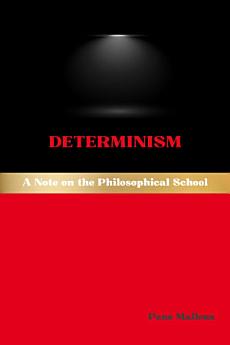Determinism: A Note on the Philosophical School
About this ebook
Determinism challenges the common intuition that individuals possess unbounded freedom to shape their own destinies. Instead, it invites us to consider a universe woven from cause and effect, where each moment unfolds from prior states according to fixed laws or chains of causality. From the mechanistic clockwork of classical physics to the probabilistic yet law-bound realms of modern science, the determinist perspective has provided a powerful framework for understanding the natural world and our place within it.
Yet Determinism is not a monolith. Philosophers have wrestled with nuanced variations such as causal determinism, logical determinism, theological determinism, and psychological determinism—each posing unique questions about the extent and nature of necessity in human affairs. This book delves into these distinct strands, offering readers a comprehensive map of determinist thought from antiquity to contemporary philosophy.
The origins of determinist philosophy can be traced back to ancient civilizations, with thinkers like Democritus and the Stoics laying early foundations. The deterministic vision was later shaped by the rise of Newtonian physics, which painted a universe functioning like a grand machine, predictable in principle and resistant to randomness. However, the advent of quantum mechanics and discoveries in chaos theory have complicated this picture, prompting fresh debates about whether determinism can truly accommodate indeterminacy and chance.
Beyond the scientific and metaphysical, Determinism also bears on ethics and human self-understanding. If our choices are predetermined by prior causes, what does that mean for moral responsibility? Can praise or blame be justified? How should societies respond to concepts of punishment and justice? These questions have generated rich discourse and have challenged many to rethink the very foundations of law, psychology, and social policy.
This book is designed to guide readers through these intricate debates with clarity and depth. It presents core arguments, critiques, and counterarguments, while also highlighting the enduring relevance of Determinism in contemporary thought. Whether one approaches the subject as a skeptic, a believer, or a curious seeker, the hope is to illuminate the complex tapestry of ideas that have shaped the determinist tradition and continue to inspire philosophical inquiry today.
In an age when questions about human autonomy, artificial intelligence, and the nature of consciousness are increasingly urgent, revisiting Determinism is more vital than ever. This volume aims not only to inform but also to provoke reflection on how we understand freedom, causality, and our very existence in a world governed—perhaps inexorably—by the laws of necessity.











